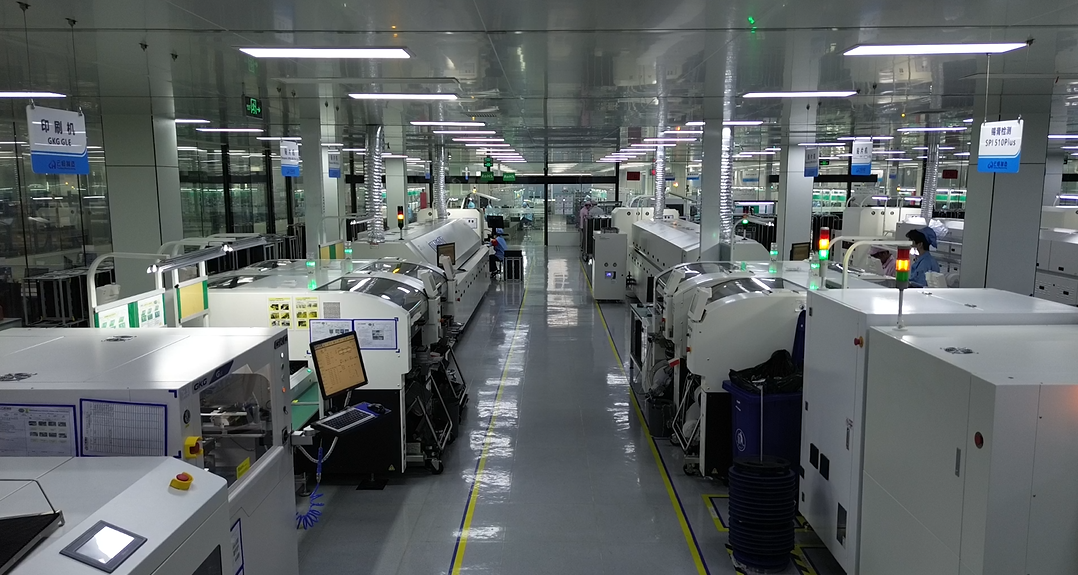Title:TheElectronicsIndustry:AComprehensiveExploration(电子产业 英文怎么写)
Historical Perspective
The electronics industry has come a long way since its inception in the early 20th century. The invention of the vacuum tube laid the foundation for radios, televisions, and other electronic devices. The subsequent introduction of transistors in the 1950s revolutionized the industry by making electronic devices smaller, more energy-efficient, and reliable. This paved the way for the creation of integrated circuits (ICs) in the 1960s, which further miniaturized electronic components and opened the door to modern electronic devices.
Key Players
The electronics industry is dominated by several multinational corporations that have established themselves as leaders in various market segments. These include Apple Inc., Samsung Electronics Co., Ltd., Sony Corporation, LG Electronics Inc., and Intel Corporation. These companies invest heavily in research and development, staying ahead of the competition and introducing innovative products that cater to the ever-changing needs of consumers.
Technologies

The electronics industry is driven by continuous advancements in technology. In recent years, significant technological breakthroughs include nanotechnology, artificial intelligence (AI), the Internet of Things (IoT), and 5G connectivity. These technologies have transformed electronic devices, making them more intelligent, interconnected, and efficient.
Nanotechnology enables the creation of materials with unique properties at the atomic or molecular level, leading to smaller, faster, and more powerful electronic components. AI has infused electronic devices with the ability to learn from their environment and make data-driven decisions, leading to advancements in home appliances, autonomous vehicles, and robotics. The IoT connects electronic devices to the internet, allowing them to seamlessly communicate and exchange data. Meanwhile, 5G connectivity provides faster data transfer speeds and lower latency, enabling real-time communication between electronic devices.
Applications
Electronic devices have countless applications across various industries. In healthcare, they have transformed patient care and accessibility. In education, they have revolutionized learning by providing interactive and engaging experiences for students. In entertainment, they have redefined how people consume media content.
Challenges
Despite its rapid growth and success, the electronics industry faces several challenges. One of the biggest is the environmental impact of electronic waste (e-waste). As electronic devices become more disposable due to rapid technological advancements, the amount of e-waste generated is increasing exponentially. This poses a significant threat to the environment as e-waste contains harmful substances that can contaminate landfills and water bodies if not disposed of properly.
Another challenge facing the electronics industry is cybersecurity. As electronic devices become more connected through IoT and other technologies, they are increasingly vulnerable to cyber attacks and data breaches. This raises concerns about privacy and data security.
Opportunities
Despite these challenges, the electronics industry offers numerous opportunities for growth and innovation. Sustainable manufacturing practices that minimize environmental impact while maximizing resource efficiency are a key opportunity. Another lies in integrating AI and machine learning algorithms into electronic devices to create more intelligent systems with autonomous capabilities. Additionally, there is potential for growth in emerging markets where access to electronic devices is still limited but increasing rapidly due to economic development and urbanization.
In conclusion, the electronics industry is a dynamic and constantly evolving field that has profoundly transformed our lives. From its humble beginnings to its current state characterized by cutting-edge technologies like AI and IoT, it continues to push boundaries and redefine what is possible. As we look towards the future, it will be exciting to see how this industry continues to evolve and shape our world for generations to come.
